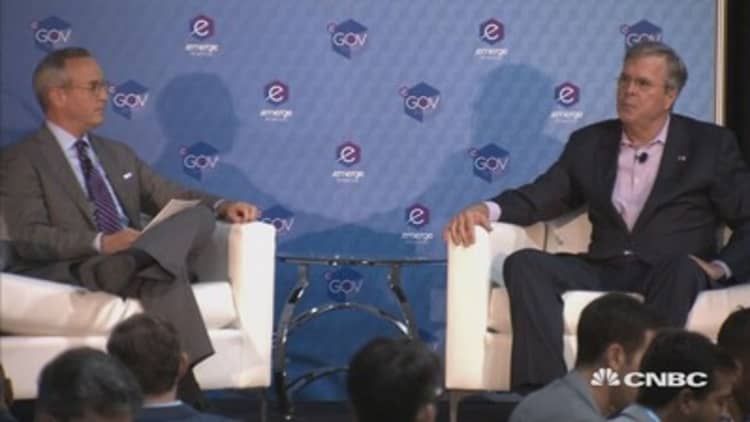U.S. President Donald Trump is under pressure to maintain the country's fragile détente with Cuba despite indications that he could strike an icy tone when he announces a policy update later this week.
Non-partisan activist group Center for Democracy in the Americas (CDA) has urged the president to rethink his hitherto hard-line stance on America's former cold war foe, claiming that the cutting of improved relations would do nothing to help Cuban citizens or serve the U.S.'s national interests.
"A rollback of recent progress in U.S.-Cuba relations would be out of step with the views of the majority of the American public—both Republican and Democrat—and would threaten the significant gains reaped by the American people and the Cuban people since the restoration of U.S.-Cuba ties," the CDA's executive director Emily Mendrala said in a press announcement Tuesday.
"President Trump has the opportunity to build on this progress and, in so doing, advance the U.S. national interest and the interests of the Cuban people. As the President well knows, you can't get a 'better deal' by walking away from the negotiating table."
President Trump is due to travel to Miami on Friday, where he is expected to give his administration's position on U.S.-Cuba ties. He has previously been critical of Cuba, denouncing President Raul Castro's government for what he sees as human rights abuses against Cuban citizens. His stance has, however, become less clear in recent months.
An official for the U.S. State Department told CNBC on Wednesday that the administration has undertaken a review of U.S. policy towards Cuba, but it remains ongoing and additional details will be provided "when they become available."
Nevertheless, on Tuesday U.S. Secretary of State Rex Tillerson gave an indication of the direction of travel for the Trump administration, saying that the U.S. must see an end to human rights violations in Cuba if it is to continue normalising relations.

"Cuba has failed to improve its own human rights record, political opponents continue to be imprisoned, dissidents continue to be jailed, women continue to be harassed," he said, addressing the Senate foreign relations committee.
"So what we have to achieve in approaching Cuba is, if we're going to sustain the sunny side of this relationship, Cuba must – absolutely must – begin to address its human rights challenges."
The thawing of U.S.-Cuba relations was instigated under Trump's predecessor, then-President Barack Obama, whose executive order saw travel and commerce between the two nations begin to resume after a half-century standoff.
The move marked good news for American businesses, such as Airbnb, whose fastest-growing market is Cuba, as well as Cuban business owners. On Tuesday, 55 Cuban female entrepreneurs sent a joint letter to Ivanka Trump, expressing concern that policies could be heading "backwards" and asking for her support.
Mendrala said the president should heed these comments for the benefit of both the U.S. and Cuba.
"To reverse course would threaten our national security, damage American businesses that are already working in Cuba, discount the rights of U.S. travelers, and hurt the Cuban people, especially entrepreneurs whose businesses are thriving because of increased travel and contacts with the U.S."
Jeb Bush, who served as the 43rd Governer of Florida, told CNBC on Monday that the U.S. would need to see more benefits from Cuba if it is to continue building ties with the island.
"I do think the policy that's currently in place was unilaterally created without anything in return," Bush said at an eMerge Americas conference.
"So if the policy to be changed - perhaps to maintain diplomatic relations, perhaps not – is to create a blueprint for how we get to a stronger deeper relationship with Cuba, and what steps Cuba has to take in return for that, that would be a positive step."


